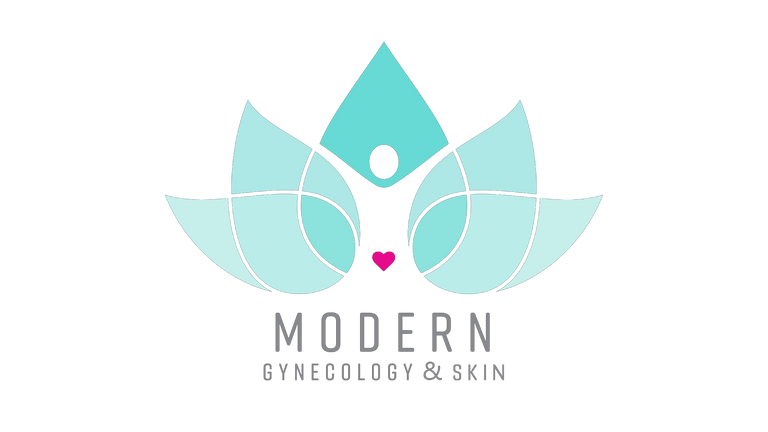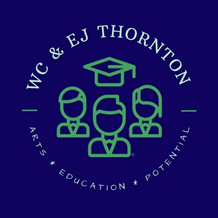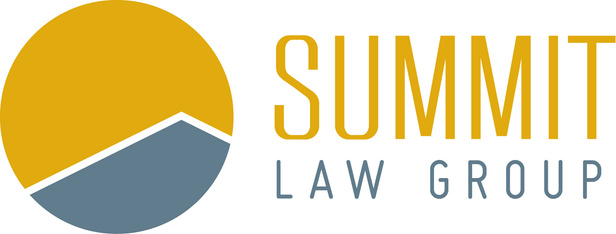
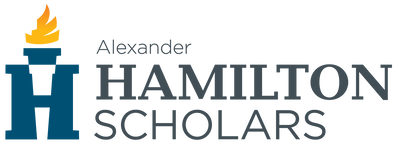
annual report 2022
Welcome to AHS' Annual Report Website! Scroll down to learn more about the bridges we built and where we're bridging to next as we empower the next generation of changemakers to thrive in college and beyond towards a future of ethical leaders who break barriers to build an equitable society
ALEXANDER HAMILTON SCHOLARS
ANNUAL REPORT 2022
FEATURED
CONTENT

Dr. Hedwall shares the successes our community achieved in 2022 and where we're bridging to next in 2023.
SCHOLAR FEATURES
Learn the difference between a hand-up and a hand-out as Maurquez details the bridges dedication, hard-work, and persistence build.
Learn more about the 33 incredible young adults from across the US, selected from over 600 high-achieving high school juniors.
The transition to college isn't always easy; Paul shares how it feels to start at square-one once again.
Learn how a simple high school senior year project became the start of a full-circle moment for Venus.
Ricky knew the pressure to succeed in college was on when their mother said she wouldn't be able to help; learn how Ricky built bridges for himself and how he's bridging the opportunity gap for other undocumented students.
Liliana has a keen eye for what feels authentic to her, but it hadn't always been that way.
ALUMNI FEATURES
The transition to college isn't always easy; Paul shares how it feels to start at square-one once again.
We are beyond proud of our 2017 Cohort and their achievements in graduating college; learn more about their rate of graduation, debt (or lack thereof), and retention through the AHS program.
Did you know? You're never too far from a Hammie, no matter where you are in the US! For Anhtu, having so many possible connections has been a blessing.
There’s a lot to do after crossing the bridge from college. Do you: (A) jump right into the workforce? (B) Start applying to postgraduate programs? Or, (C) focus on service?

REPORTS
THE 2022
COHORT
Each year we welcome up to 40 new underserved, high-achieving students from across the US to participate in our five-year Empowerment Curriculum; learn more about the 2022 Cohort by clicking below.
ORGANIZATIONAL
FINANCES
The ability to partner with our Scholars in education access is made possible by our incredible community. Click the button below to see our 2022 revenue, expenses, and the ways our Scholars used the Emergency Fund.
AHS
SPONSORS
We can't do what we do alone; see the generous sponsors who make our work a reality! Click below to see the list of organizations sponsoring Alexander Hamilton Scholars.
THE 2017
COHORT
The Empowerment Program's goal after five-years of curriculum is our Hammie's successful transition to career, continued education, or a service project, and, minimal, manageable debt upon graduation. Click below to learn more.
ANNUAL LETTER
EXECUTIVE DIRECTOR
DR. ANGELA HEDWALL
Our Hamilton Community,
It’s been an exciting, yet busy time of bridge building alongside our community. 2022 brought us an incredible group of high-achieving, underserved high school juniors: the 2022 Cohort! Already, they’ve embarked on their roads to accessing higher education; we’ll continue partnering with them, offering support and encouragement as they encounter obstacles from high school, to college, and wherever their path takes them. We all experience difficulty as we grow and learn; it’s a joy to work with our Scholars through comprehensive curriculum, wrap-around support, and mentorship — spanning the space between difficult situations and recognition of their strength, personal agency, and ability to navigate their world-changing paths.
We are 19 years, 562 Alumni, and 142 active Scholars strong! This year promises exciting opportunities; a few include:
- Welcoming 40 high school juniors to the AHS Empowerment Program
- Continuing our return to in-person Leader Weeks, bringing together Scholars from across the United States in community and learning
- Providing emergency funds that bridge the chasm of high drop-out risk circumstances for students
- Supporting under- or unpaid internships, enabling our Scholar’s ability to seek opportunity anywhere
Our 2023 budget has needed to grow to meet the services and supports we provide to our Scholars — I thank all of you who have made the past 19 years possible, and I passionately invite you to share in the lasting impact of our program by generously donating again in 2023 with the vision of entering a strong and healthy 20th anniversary in 2024!
It is a pleasure to present you our 2022 annual report reflecting your impact and the beautiful spotlights on a few of our exceptional Scholars’ who gifted us with their stories.
My wish for all of us in 2023 is that we glance back with kindness at where we started on our journey, see how far we have traveled, and experience gratitude for our strength and for all those that journeyed alongside of us, helping us bridge gaps we were uncertain we could cross alone.
Extending love & light to all,
-Angela
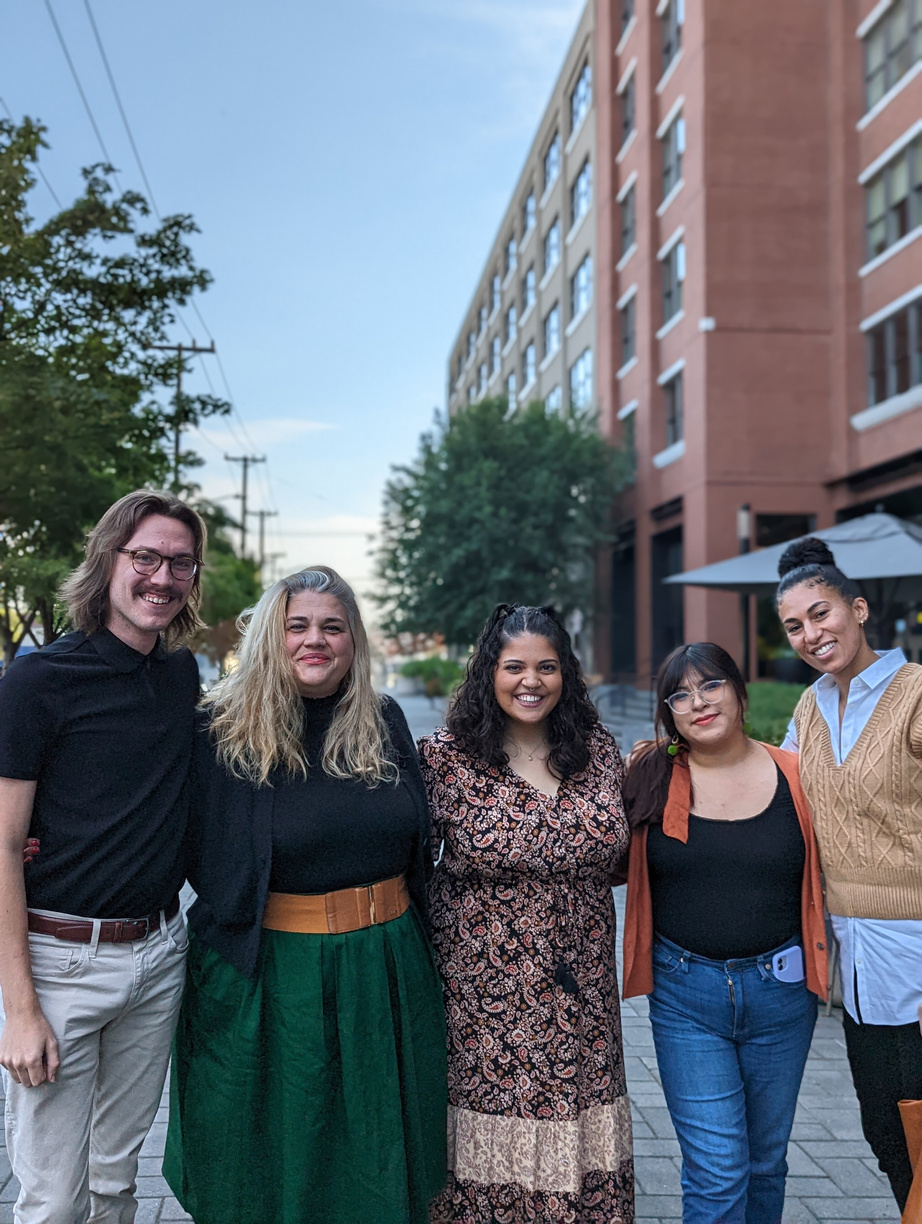
ABOVE: The AHS Team poses for a photo / [FROM LEFT TO RIGHT] Communications + Data Manager Elias Olson, Executive Director Angela Hedwall, Assistant Director & Director of DEI Mikala Lain, Social Media & Volunteer Coordinator Yenny Arteaga, Program Manager Cassandra Baddeley
BELOW: The AHS Team poses for a photo / (FROM LEFT TO RIGHT) Program Manager Casie Baddeley, AHS Volunteer Margie Schneiderman, Financial Aid Counselor Lynell Engelmyer, (above) Assistant Director & Director of DEI Mikala Lain, (below) Social Media & Volunteer Coordinator Yenny Arteaga, Communications & Data Manager Elias Olson, College Counselor Kelly Herrington

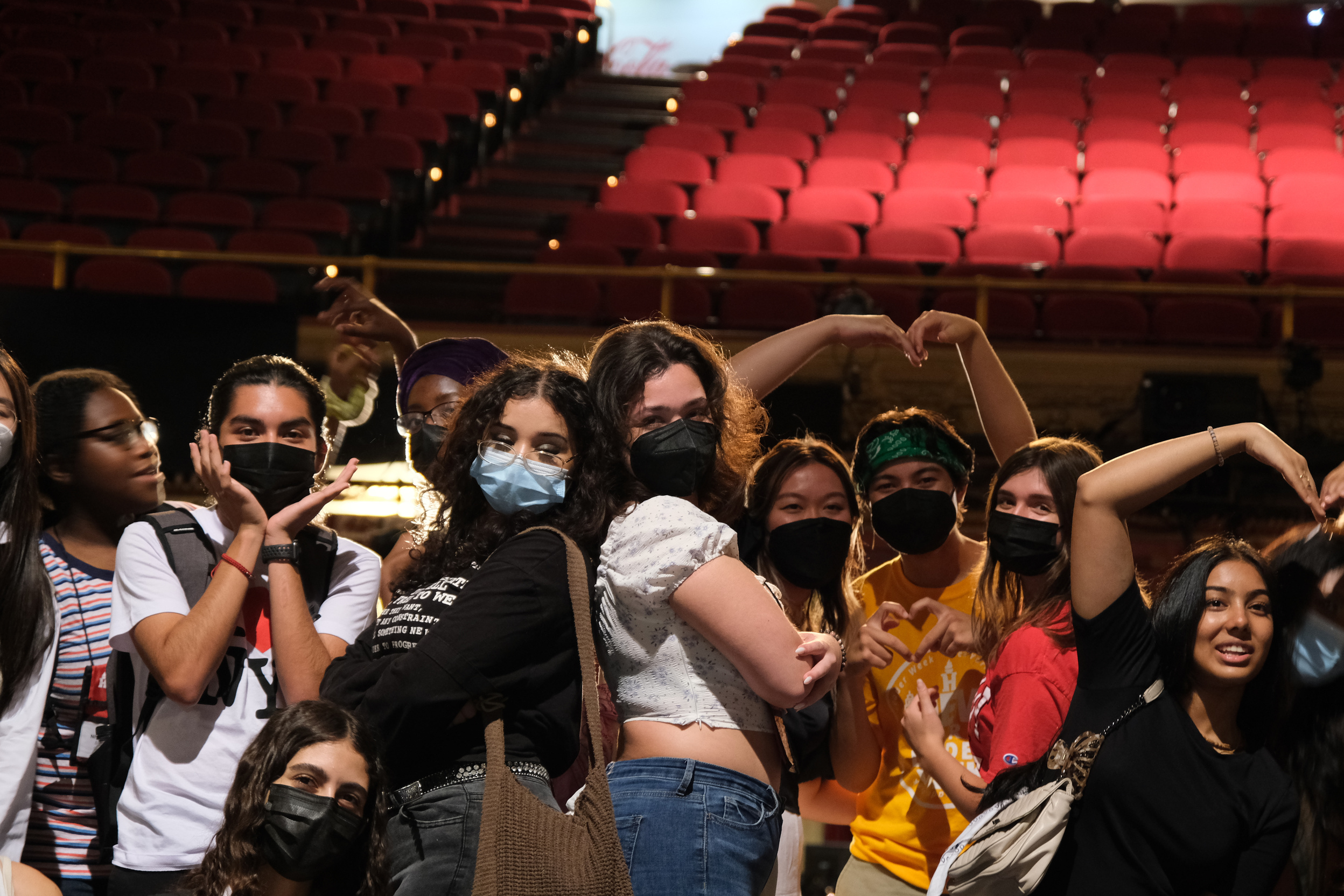
ALEXANDER HAMILTON SCHOLARS
ANNUAL REPORT 2022
FEATURED
SCHOLARS
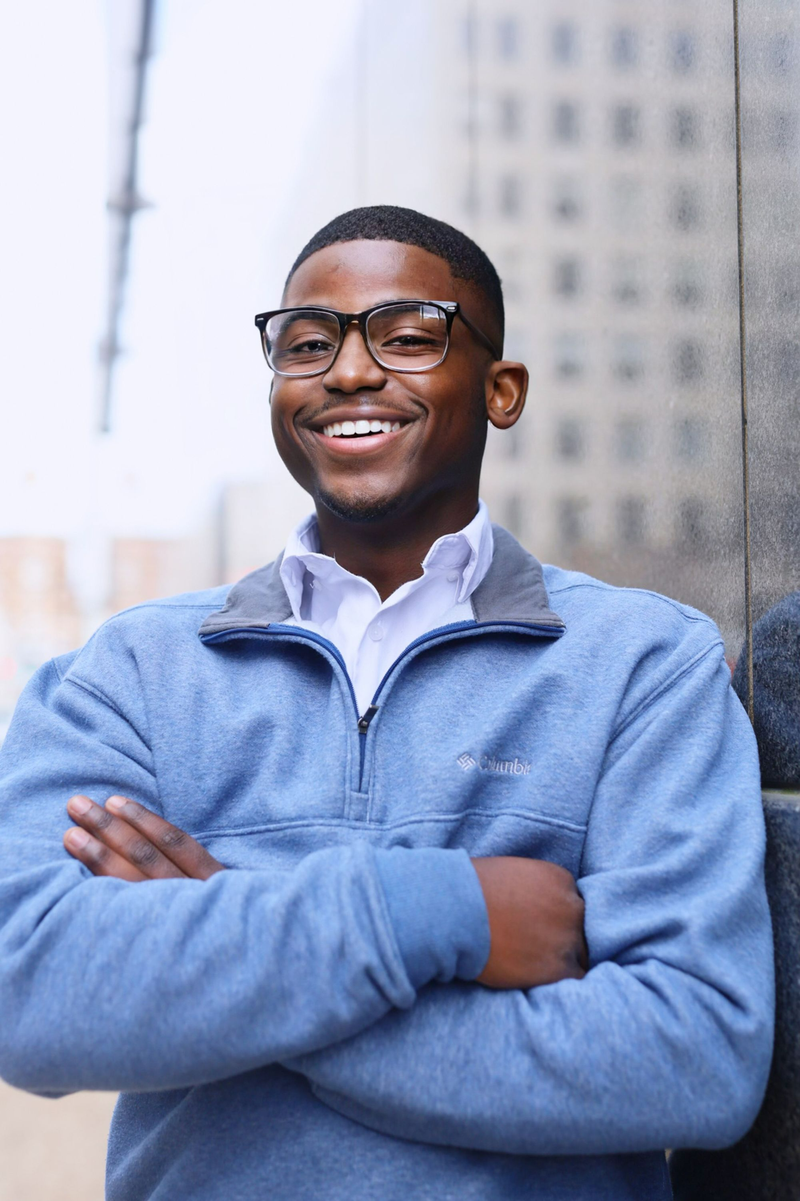
ABOVE: 2022 Hammie Maurquez Thompson poses for a photo
Nobody’s going to give you a handout...if you work hard, there will be someone along the way with a hand-up.
COMMUNITY & A HAND-UP
YEAR 1 // 2022 COHORT
MAURQUEZ THOMPSON
Bridges are foundational to community, allowing us to connect and grow with others, but they aren’t built overnight. Maurquez Thompson (‘22) knows first-hand the opportunities bridges enable and the dedication, hard work, and persistence it takes to span the difficult terrain of life.
A senior from Brainerd High School in Chattanooga, Tennessee, Maurquez dreams of waking up and donning black robes, having been nominated by the President and confirmed by the Senate. He dreams of becoming a federal judge. Especially, Maurquez said, because only 5% of lawyers are Black (American Bar Association, 2020) and Black judges make-up only 10% of those sitting on lower federal courts (CAP, 2019). He knows the reality facing him: “Nobody’s going to give you a handout; being low-income might make it ten-times harder, but if you work hard, there will be someone along the way with a hand-up.
Maurquez makes clear, a “hand-up” is very different from a “hand-out.”
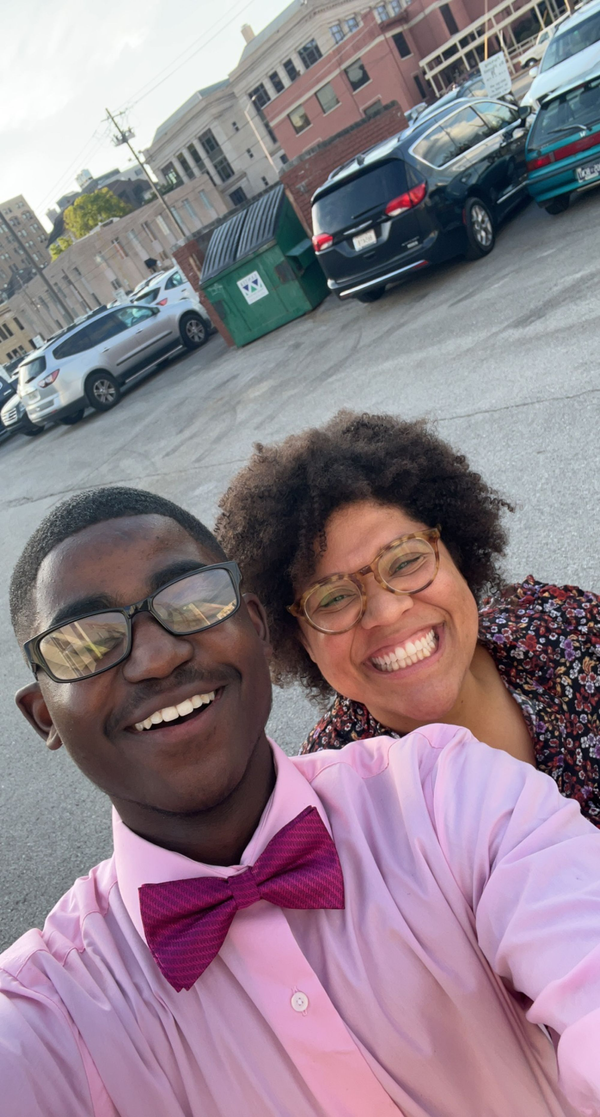
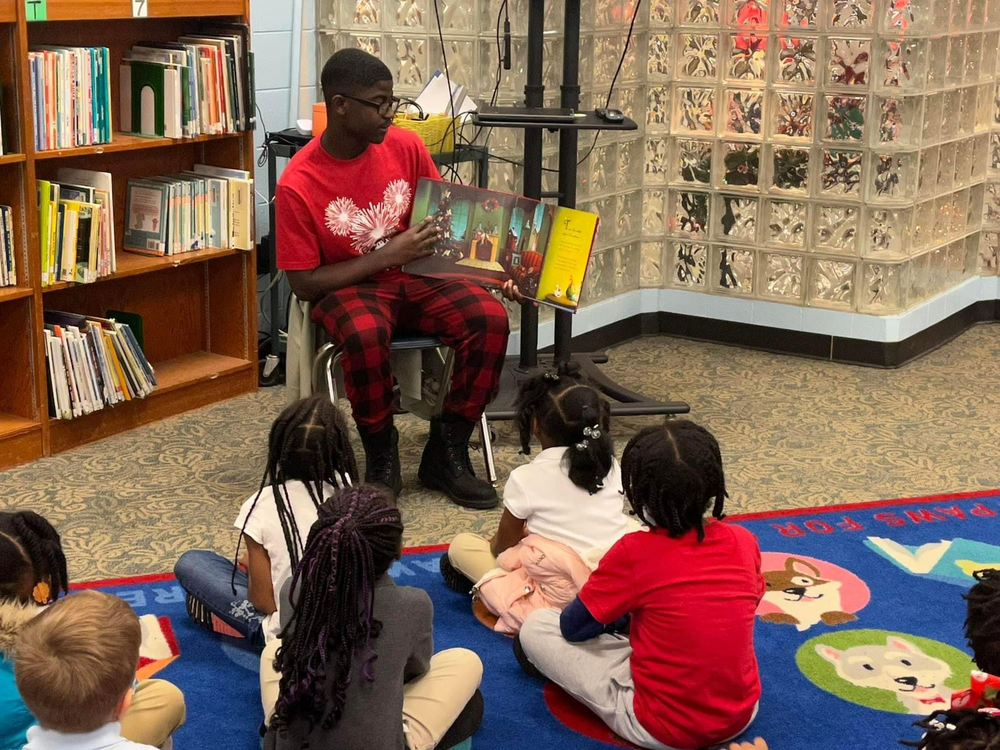

LEFT + RIGHT: Maurquez poses with his two mentors
MIDDLE: Maurquez reads to children at a school in his community
“A hand-up is when someone knows you need [a hand-up] to get where you’re going, but you’re actually putting the work in,” he said; It’s mentorship. It’s community support.
As a high school freshman, Maurquez searched for that hand-up — a mentor in the legal field — but repeated cold-emails led him nowhere. Maurquez was undeterred. Instead, he did what he wished for in a mentor: he poured his energy into his community. For him, it was never about volunteering for the sake of putting it on his resume. “Being actively involved [in community] is consistently doing it, enjoying it, and having a part in it,” Maurquez said.
One such commitment was serving on the Hamilton County Juvenile Youth Court, deciding consequences for first-time, non-violent teen offenders. Here, Maurquez says he advocated on behalf of his community — for peers that both mirror or differ in background.
As he’s continued building community, the folks he previously sought mentorship from began reaching out with opportunities and connections, offering a spot at the table for him.
“Being involved makes me feel like I’m no longer the food on the table,” Maurquez said. “Rather, the person at the table with a say.”
Today, Maurquez counts four important bridge-builders in his life: his mother, who sacrificed countless hours driving him to extracurriculars; Marie Mott, a mentor, who isn’t afraid to hold Maurquez accountable; Isaiah Robinson, an attorney at Chambliss, Bahner & Stophel P.C. — where Maurquez interns — who’s shown him what positive, accessible representation as a Black man in law looks like; and finally, his AHS community — the 2022 Cohort and staff — who’ve championed his successes, listened when he struggled, and provided a community of support that’s irreplaceable.
“Booker T. Washington said it best: ‘Success is to be measured not so much by the position that one has reached in life as by the obstacles which he has overcome,’” Maurquez said. “I overcame cancer and its challenges. To me, success is when a person puts in the work to get where they want to be — when you put in the work, there will be someone along the way to provide you a hand-up.
2022 COHORT STATS
YEAR 1 // 2022 COHORT
These 33 young adults from across the United States exhibit the highest standards of character and leadership through service, selected from a pool of over 600 high-achieving high school juniors nationwide.
In 2022, this Cohort met for the first-time in-person at New York Leader week; together they prepared for their senior years and are now receiving college acceptances to the best-fit institutions across the United States.
71%
first generation college students
avg. household income
50k
2021 national median income
79k
Native or Indigenous
8%
27%
Middle Eastern
3%
Hispanic or Latinx
14%
White
14%
Asian
35%
race/ethnicity
African American or Black
community type
suburban
49%
rural 11%
urban
40%
regional distribution

ABOVE: 2021 Hammie Paul Quach poses for a photo
BRICK BY BRICK
YEAR 2 // 2021 COHORT
PAUL QUACH
How do you build a bridge? No, seriously — it’s not a trick question or a bad pun — 2021 Hammie Paul Quach knows that through uncertainty, setbacks, and transitions, you build a bridge brick by brick.
“Leading up to college, I always thought ‘I’m ready to go there and slay,’” Paul said, now a student at Wesleyan University in Middletown, Connecticut. “But, the transition hit me harder than expected; I knew [however] that it’d only make my experience more memorable and worthwhile.”
For Paul, the responsibilities he took on at a young age — translating English for his parents, or pitching in to support the household — drove him to constantly seek more responsibility as he worked his way towards senior year and graduation. He knew college was on his path and figured that all the set-backs and obstacles he’d bounced back from during high school would allow him to breeze across this next bridge towards college and into his future.
[But], I had no bridge — or, rather it was half-done and felt broken; even though I knew what I needed to do or how to reach out for support, it was scary or felt too intimate,” Paul said. “I felt like I was back at square one — especially being across the country at a predominately white institute (PWI) where it felt like everyone knew everything already.”
Getting his first college physics exam back was a rude wake-up call, Paul said. Imposter syndrome crept in as he began to feel the acute isolation of attending college far from the familiarity of home. False-starts at establishing a community on campus furthered his distraction to the point where Paul began asking himself questions: What was he doing? Why was he there? What was he trying to get out of college?
“I had to remind myself: I was there for my community. I was doing this for my family,” Paul said, recalling how at that moment, it felt like being a high school freshman again. He just had to remind himself, he had time to improve and grow towards feeling like a senior again — similar to how he grew in high school.
Paul said, once he slowed down and took stock, he realized that being at square one wasn’t the end; he would bridge his own transition, slowly.
Even though he was initially turned down for Wesleyan Student Assembly positions on the First Generation, Low-Income Advisory Board or the Equity and Inclusion Committee, Paul sought out different ways he could continue leveraging his passion for advocacy. This led him to April Ruiz, Dean for Academic Equity, Inclusion, and Success — who Paul checks-in with regularly to remind himself of his belonging on campus and his potential.
Furthermore, Paul has leaned-in more than ever with his HamFam, checking-in regularly with Assistant Director & Director of DEI Mikala Lain, serving as the 2022 Marketing & Social Media Intern at AHS, and sharing his journey with the 2022 Cohort as a mentor.
“Having a community in your corner to share, laugh with, and be supported by — sharing similar stories — grounded me,” Paul said. “Sharing how I secured the Gates Scholarship with [a 2022 Hammie] reminded me how hard I worked; it was cool having younger Hammies reach out and ask for my advice!”
As he continues building towards a transition to college that respects his previous journey and honors his capacity for growth, Paul plans to keep-up his patented, “What Would Paul Quach Do?” zeal for new experiences. His goal: Bridge gaps and break stigmas FGLI students face in pursuing post-secondary education – one brick at a time.
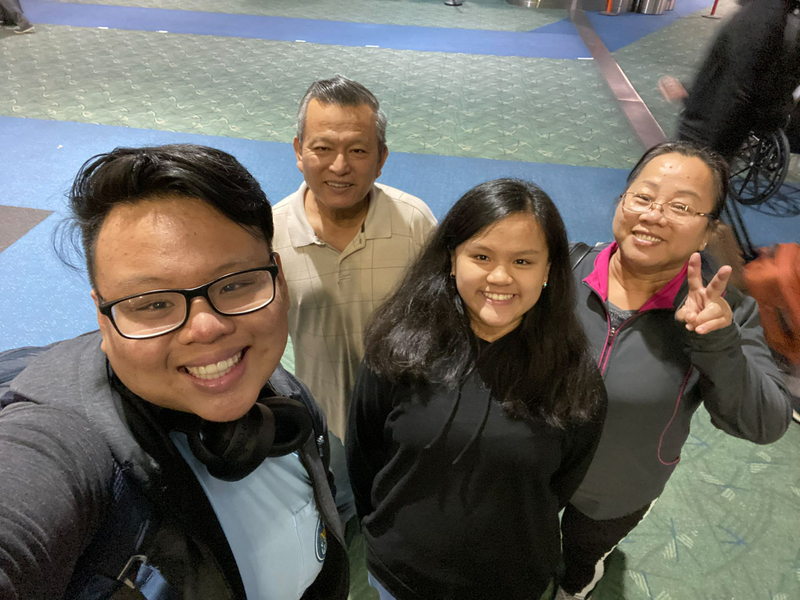
ABOVE: 2022 Hammie Paul Quach poses for a photo with his family. Since leaving for college, Paul said his relationship with his parents has greatly strengthened; together, they're challenging stigmas against mental health, breaking generational trauma.
ANNUAL REPORT
SIDEBAR
AHS MENTORSHIP
Mentorship is a cornerstone of the AHS Empowerment Program to bridge critical gaps in transition. Here’s how mentorship at AHS works:
- Year 1 students, our high school juniors, are hand-paired with Year 2 students, giving the new Hammie a connection beyond their initial Cohort to an older Hammie who have completed a year-plus of the Empowerment Program, selected their college, and received scholarships.
- For Year 2 students, the Year 1 - Year 2 mentorship provides exposure to being a mentor, often the first formal mentorship where these students practice passing down knowledge and best-practices.
- The Hammie Connect project includes alumni and community members in the mentorship process; any Hammie from any year can seek mentorship from our extensive network.
- The AHS Council of Advisors: Just as AHS models the support of our Scholars after the mentorship Alexander Hamilton received from his community, so too do we understand that our long-term growth must include mentorship and community at the organizational level. The Council of Advisors serves as critical community champions in support of our mission.
FULL-CIRCLE BRIDGES
YEAR 3 // 2020 COHORT
VENUS LI

ABOVE: 2020 Hammie Venus Li poses for a photo
It’s easy to think that bridges simply connect two points — that it’s a way to get from “Point A” to “Point B” on your journey to “Point C,” and so on. But, for 2020 Hammie Venus Li, this past year brought a number of paths from bridges already crossed, together — and it all started with a high school project on breast cancer.
“If you’ve watched Lilo and Stitch, you’ve heard ‘ohana,’” Venus, who grew up on Honolulu and attends the University of Hawai’i at Manoa, said. “Growing up here, everyone develops a sense of family.”
It was reasonable then for Venus to form a familial connection to the geriatric clients she assisted at her local hospital. Venus said she pictured her own grandparents in those clients — she didn’t want them to feel alone; spending time listening to her clients broadened her understanding of life — beyond what her peers or close friends alone could have shared.
For Venus, her respect and connection to her community, Native background, and first-hand experience with cancer in her family, drove her interest in understanding the impacts of cancer.
“Cancer doesn’t just affect the person with the diagnosis,” Venus said, who’s family history and Native heritage puts her at a higher risk of developing breast cancer. “[It] affects the family structure and those who care deeply for the person diagnosed.”
Seeing how her own family was impacted — learning about treatments and the likelihood of success — Venus said her first step in cancer research was the aforementioned high school senior year research project on breast cancer.
Today, Venus interns as a research assistant under her mentor and Principal Investigator, Dr. Lenora Loo, working to understand the ethnic differences in cancer as part of The Multiethnic Cohort Study (MEC). Working with Dr. Loo feels like a very “full-circle” moment, Venus said, one she thanks her AHS 2020 Cohort for helping her pursue.
Venus almost didn’t apply to be a Hamilton Scholar. At the prompting of her high school counselor, she applied anyway; soon enough, any awkwardness or overwhelm at joining a group of people she didn’t know quickly faded. To her, even though the COVID-19 pandemic kept them from meeting in-person, AHS and her 2020 Cohort fostered a close-community together — the bonds forming through their shared backgrounds. Together, Venus says her Cohort helped her overcome her imposter syndrome so that she felt confident in applying to the internship with Dr. Loo, who’s paper she used in her high school research project.
“All my paths were aligning: I was deeply interested, I had coursework and some experience under my belt, and it was the right time in college,” Venus said. “My Cohort has always encouraged me to apply for things I would’ve never put myself out there for, but after my Cancer Seminar class with Dr. Loo, I took the risk and applied — the worst she could say was no.”
Knowing how traumatic a cancer diagnosis can be and how powerless it feels to not be able to do anything in the face of something so unknowable to the average person, Venus’ goal is to be there for her community: guiding people through treatment options, breaking down what’ll happen to them during the process, and partnering with folks to overcome the language and knowledge barriers – all things that can make a cancer diagnosis that much harder to process.
“When [you] feel lost and helpless, I want to be there to do what I can to make your life easier,” Venus said. “The more I can know [about cancer], the easier it is to be there for someone.”
BELOW: Venus poses with classmates from the
University of Hawai’i at Manoa
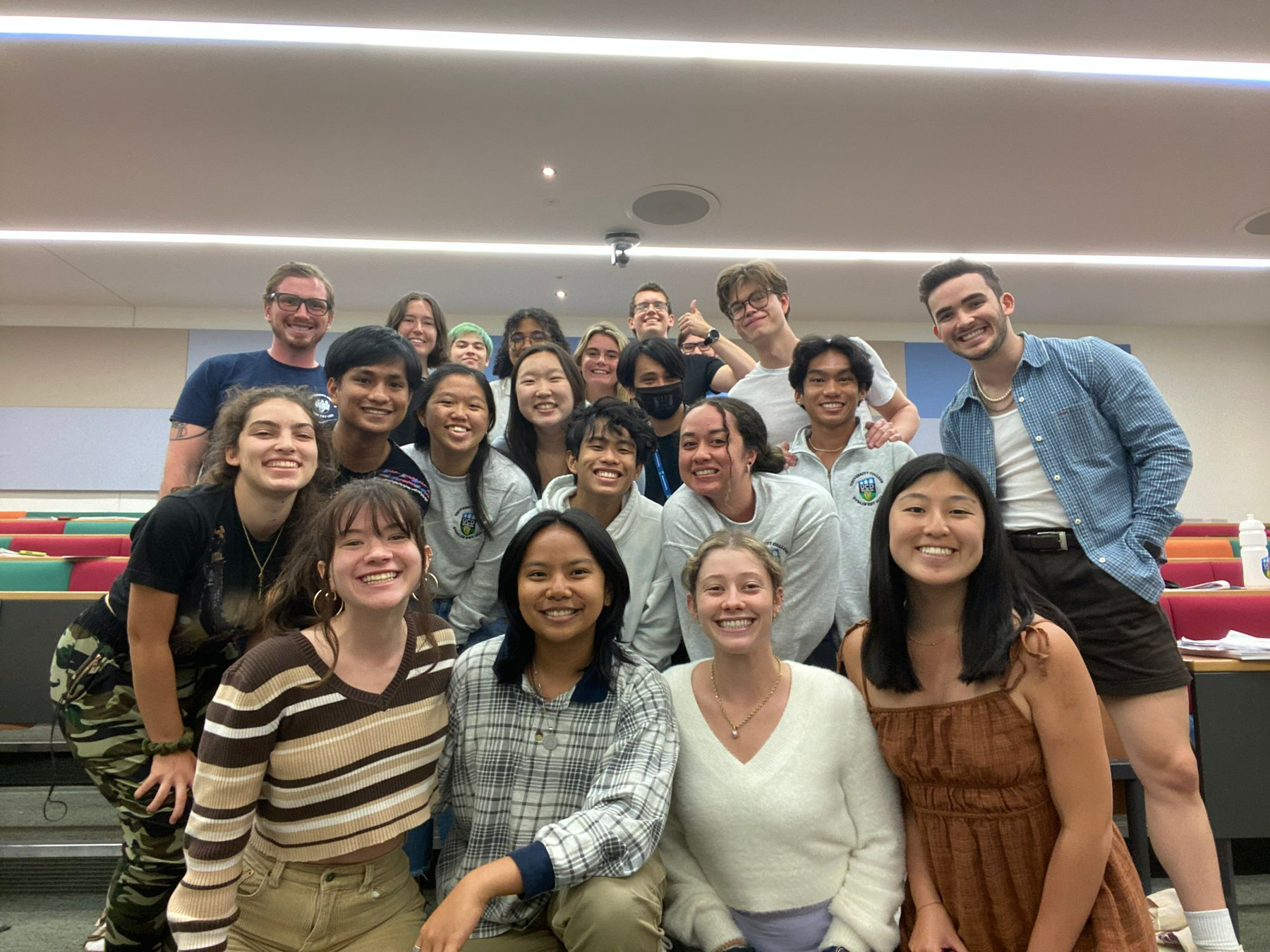

DREAMING OF ACCESS
YEAR 4 // 2019 COHORT
RICARDO "RICKY" RIVAS PIZZARO
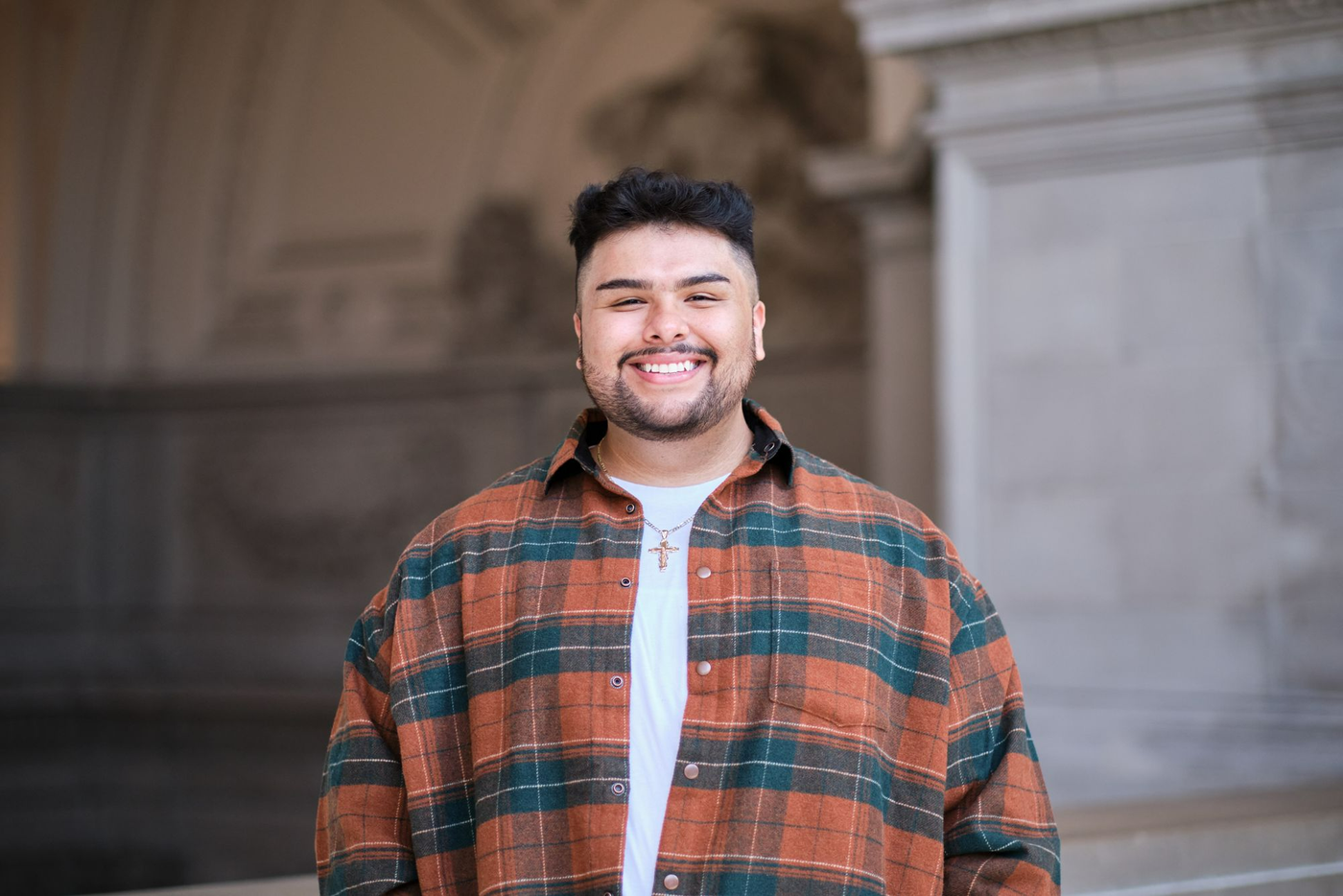
ABOVE: 2019 Hammie Ricky Rivas poses for a photo

Every year, 98,000 undocumented students graduate from high schools across the United States, facing barriers to accessing college at every turn: a lack of access to federal aid, scholarship residence requirements, and organizations that don’t account for the needs of these students (HEIP, 2019). When Ricardo “Ricky” Rivas Pizzaro’s mother sat Ricky down to say she wouldn’t be able to help them attend college, they knew the pressure was on.
In 2019, when Ricky applied to be a Hamilton Scholar, they wrote: “I need people to prosper…it’s a harsh world down here, especially in a community like Richmond, [California].”
Reflecting on it now, Ricky remembers how different a person they were only a short four-years ago.
“I think I was a little egotistical then,” they said. “The LGBTQ+ and undocumented communities deal with so much, and so many of us — and I say “us” because I was there at some point too — fall behind and let the negativity of life consume us. It’s a scary mindset.”
Because Ricky knew they carried the responsibility for their education squarely on their shoulders, their definition of success was skewed. As a senior, Ricky narrowed their focus on placing within the top 10% of students in their graduating class. It was an intense need, they said, and when that didn’t happen and the college decisions they received weren’t satisfying, Ricky opted for community college — becoming a bridge to a bright future. There, they discovered a new definition of success — one they could be proud of.
“I started working for a nonprofit — assisting undocumented students across the country — I was making honors, and I wasn’t in debt,” Ricky said, graduating and getting accepted to UCLA, UC Berkeley, UC Davis, and UC Santa Barbara. “I found my own definition of success: working hard, finding inspiration to persist, and being motivated to do what you want for the right reasons.”
Undocumented students face unique obstacles in-excess to the challenges first-generation students already face in accessing higher education:
- Residency requirements; almost all opportunities — jobs, scholarships, fellowships, etc. — have residency requirements that can bar or severely limit students.
- Undocumented students, including DACA (Deferred Action for Childhood Arrivals)recipients, are unable to access federal aid; these students often work multiple jobs to pay for college — their status can impact the kinds of jobs they can take compared to their peers with legal status.
- Increased family reliance, including dealing with the reality of a “mixed-status family” where even if the student has legal status, their parents may not.
- Navigating complex application processes for DACA, immigration, or citizenship on top of the complexity of college.
Now, as a fellow at Dream SF, Ricky works to bridge the gap for other undocumented students. As part of the Legal Services team, Ricky helps clients file their legal forms, including Deferred Action for Childhood Arrivals (DACA) renewals, Visas, and applications for US Citizenship. Ricky said, since college, they knew political science would lead them to becoming an immigration lawyer; their fellowship solidified their pursuit of helping undocumented students overcome the sea of rejection and lack of accommodations.
“Our [immigration] status doesn’t define us, it motivates us to be better” Ricky said, a sentiment they always share with their clients. “The experiences I’ve faced, they’re going to go through [too]; I’ve had to find lots of my own accommodations. I don’t want them to jump through the same hoops, or worse, drop-out because they don’t see a way forward.”
Ricky says they’re proud of their journey — proud of the work they’ve done for the LGBTQ+ and undocumented communities; they feel more like a Hammie than ever before with their newfound definition of success and understanding that not only have they been equal in value to their peers, but that they’ve always been that way.
Looking forward, Ricky hopes to open their own legal clinic, continuing to assist other undocumented folks — building bridges they wished they would’ve had.
ANNUAL REPORT
ASIDE
THE MONARCH
Immigration activists and advocates use the Monarch butterfly as a symbol to humanize individuals living in the United States who are undocumented. At AHS, we’ve modified the flame of our logo to signal that we are DACA-friendly, and keep our Hammie’s citizenship status confidential to external parties.
AHS, in partnership with organizations like Immigrants Rising, meets undocumented students where they’re at: connecting them to resources without residency requirements, offering emergency funds to cover DACA application fees, and ultimately, connecting them to students in similar situations — a student’s status, doesn’t mean they have to go it alone.
SEEING HER OWN FUTURE
YEAR 5 // 2018 COHORT
LILIANA GONZALEZ
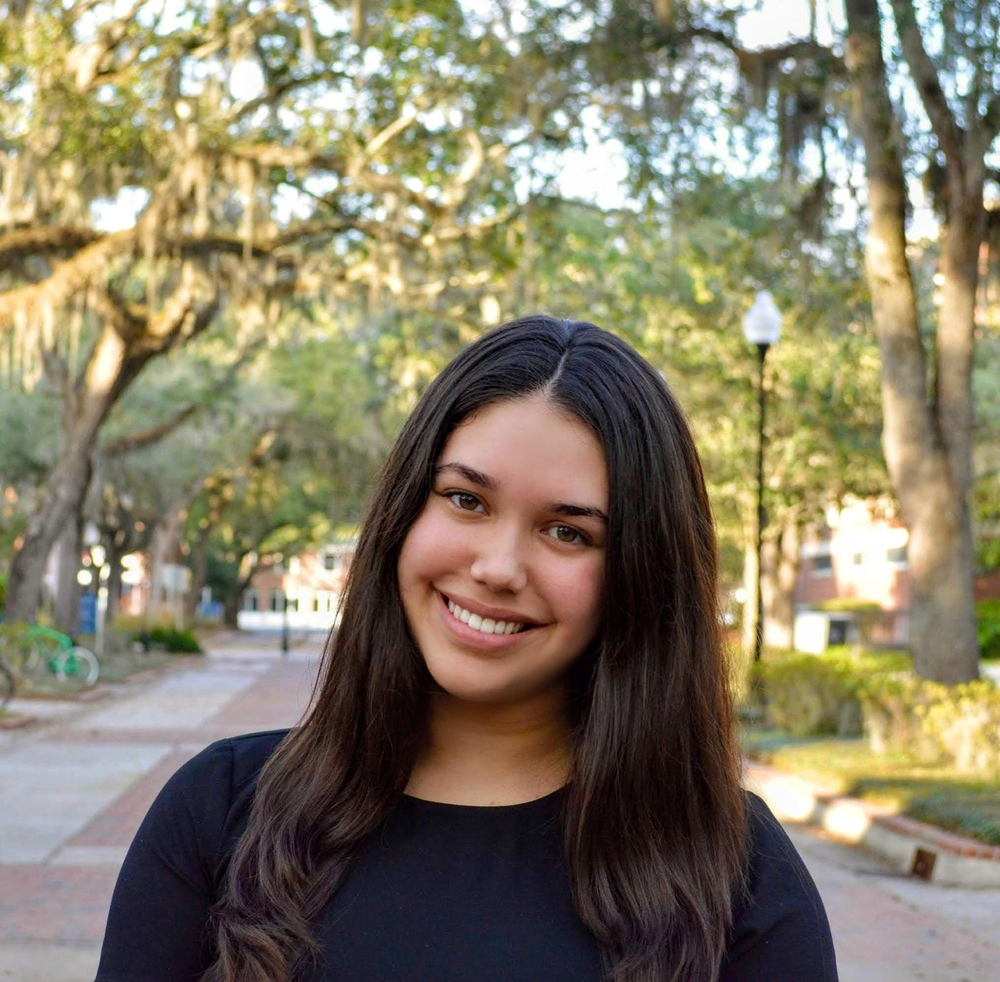
ABOVE: 2018 Hammie Liliana Gonzalez poses for a photo
Bridges span gaps to all manner of destinations. For example, millions of students cross the bridge from K-12 education to undergraduate programs, graduating from one of 20k+ high schools in the United States to pursue a degree at one of 5,000+ U.S. colleges. With so many routes to take, it’s no wonder that for 2018 Hammie, Liliana Gonzalez, her priority was picking a path that authentically represented her. But, finding that path took time and reflection on her past experiences, values, and desired future.
“My first semester of college was really scary,” Liliana said, a 2022 graduate from the University of Florida with a Bachelor’s of Science in Microbiology and Cell Sciences with a minor in Health Disparities. “I remember doing super poorly on an exam — my first [college] exam ever — I spent the night crying because it was such a shock; I was a straight A student in high school, but this was a whole other ballgame.”
Shaken, Liliana said she reached out to her mentor, a fellow first-generation student and together they spent the night countering the insecurities that fed her imposter syndrome — being reassured that she was there for a reason and didn’t get in by fluke. Remembering that night and all the mentorship she was provided with, Liliana says it made her realize that she needed to be that same kind of person for other first-generation students. She had spent so much of her time when she first started college trying to assimilate, instead of leading with authenticity — a trap she didn’t want other Hammies to fall into.
Since then, Liliana — even in the midst of demanding graduate school applications — has leaned further in with AHS to provide support to younger Hammies and bridge gaps for other first-gen students who aren’t able to access the resources the AHS Empowerment Program provides. Prior to leaving for the University of Indiana to pursue optometry, Liliana served as a part-time volunteer before becoming a part-time Program Coordinator at AHS.
Liliana says the biggest thing that’s changed since joining the program has been how she’s grown to trust herself and what she wants, not letting herself be weighed down by doubt — something she thanks her Hamilton community for showing her.
“Hamilton does a great job at bringing out your authentic self,” Liliana said. “Hammies coming together to celebrate our different paths forward — their encouragement empowered me to turn around, empower my peers, and then empower my community!”
Becoming an optometrist has been an exercise in flexing her newfound self-trust. Growing up, Liliana said her parents encouraged her to become a doctor or a lawyer — unknowingly causing a lot of pressure and stress for her. This stress only grew as college revealed that pre-med wasn’t a good fit; still, Liliana wanted to do something in the health field.
“Then I remembered: my first job in high school was working in a small eye clinic. Getting to help people see the world better? That always leaves me with a good feeling,” Liliana said. “Everything was aligning — I had found a career that wasn’t going to burn me out, and now, I’m going to be the first in my family to graduate as a doctor!”
Liliana begins her program in August 2023, but until then, continues her community building with Hammies as part of the program team.
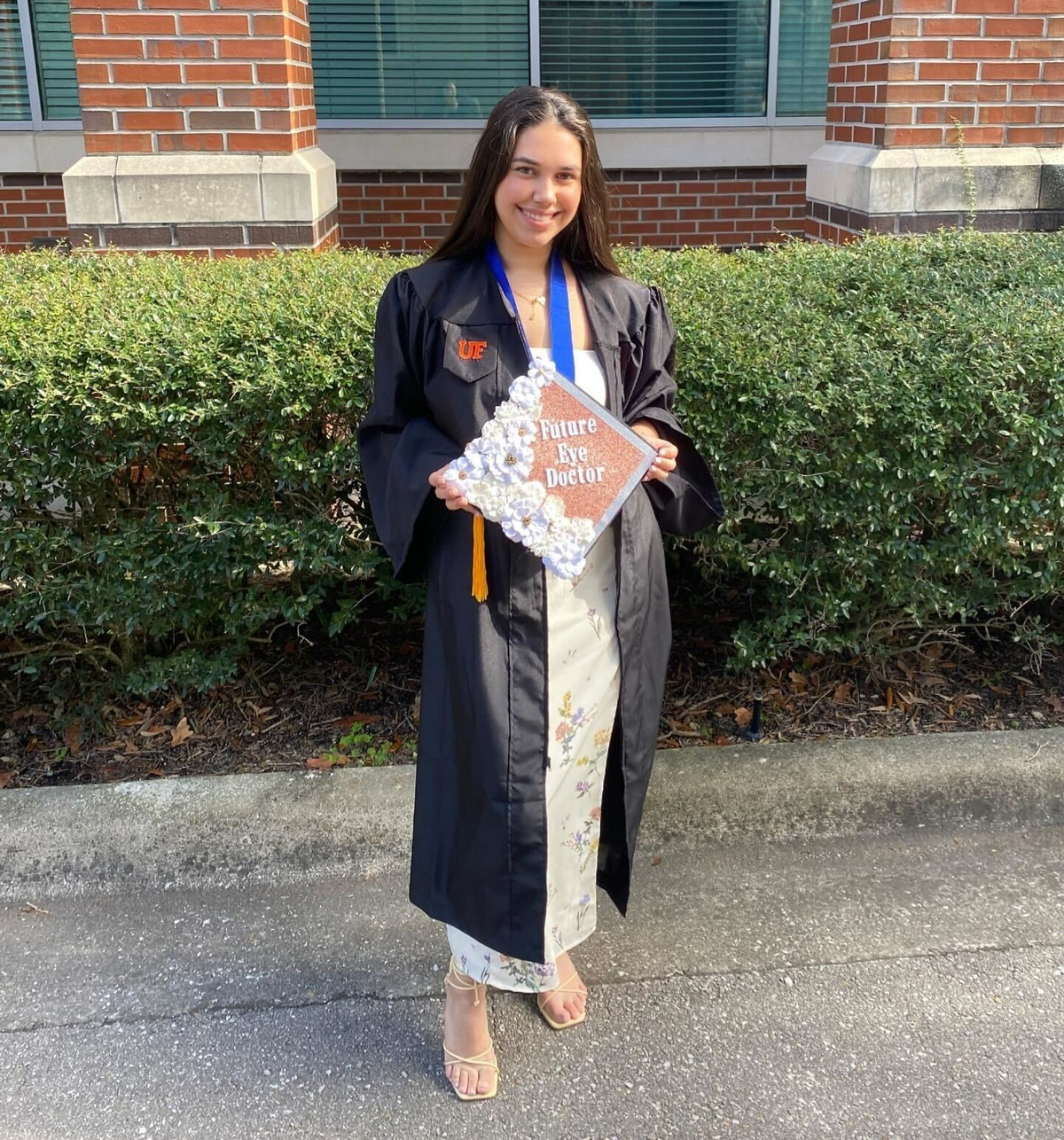

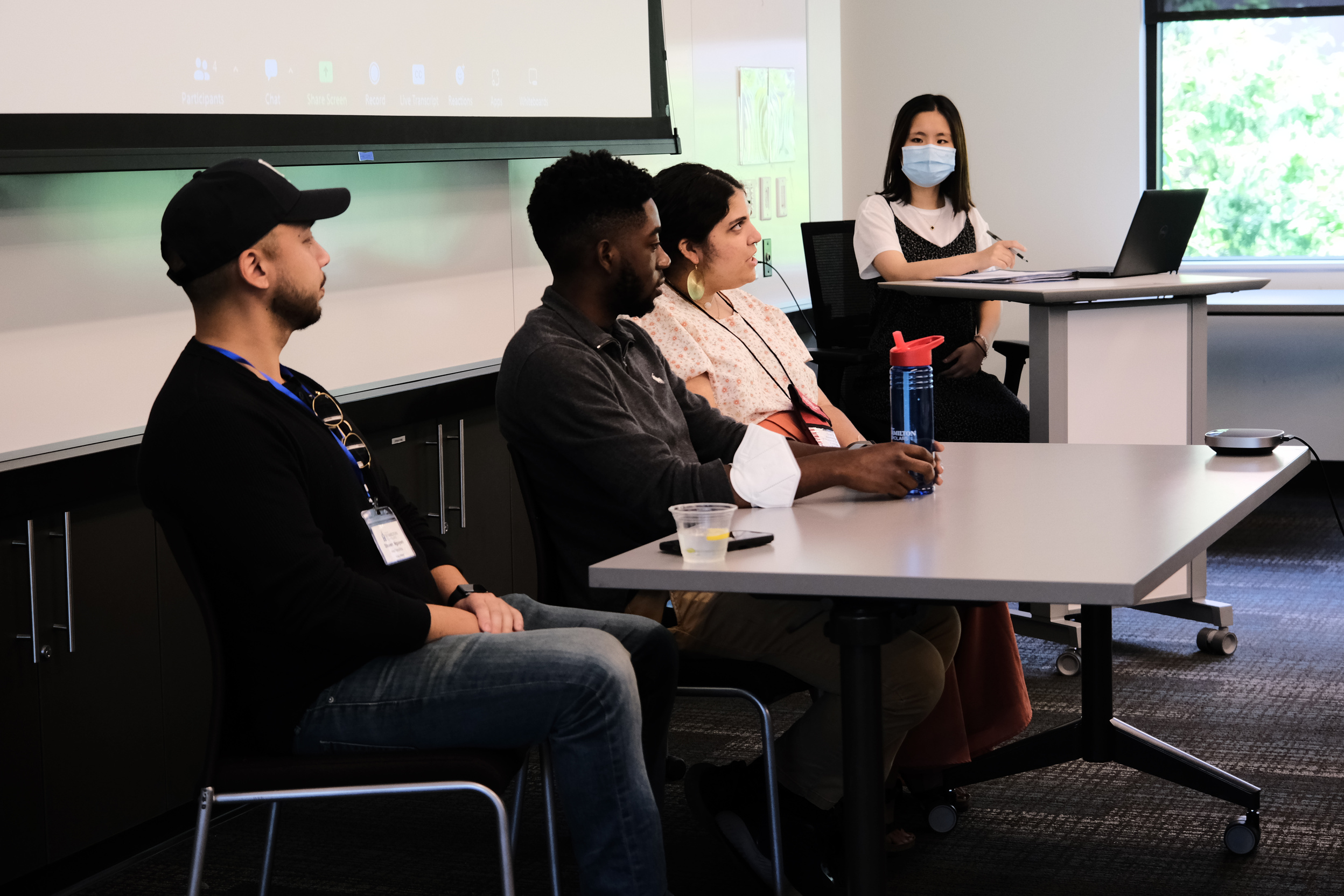
ALEXANDER HAMILTON SCHOLARS
ANNUAL REPORT 2022
FEATURED
ALUMNI

ABOVE: 2017 Hammie Wunmi Awelewa poses for a photo
BRIDGE CROSSING
ALUM // 2017 COHORT
WUNMI AWELEWA
Sometimes, when you begin crossing a bridge, you don’t always know what’s waiting on the other side; it takes persistence, someone to cheer you on, and faith in yourself to keep going. For 2017 Hammie, Wunmi (Woo-me) Awelewa, the COVID-19 pandemic started her on a path towards the Computer Science field — in the midst of her psychology undergrad program at Williams College.
Wunmi has never been one to put herself in a box or limit herself. In high school, surrounded by extremely intelligent peers, Wunmi said she noticed that what really mattered was who did and didn’t put work in. For her, tenacity and work-ethic propelled her forward.
“It’s not all about who works the hardest, you also have to step back and reassess: am I doing the right thing, am I putting my effort into the right work?” Wunmi said. “I’ve always known that if I work hard, the universe will align — even then I don’t have to do all the work — the universe can bring you mentors to help!”
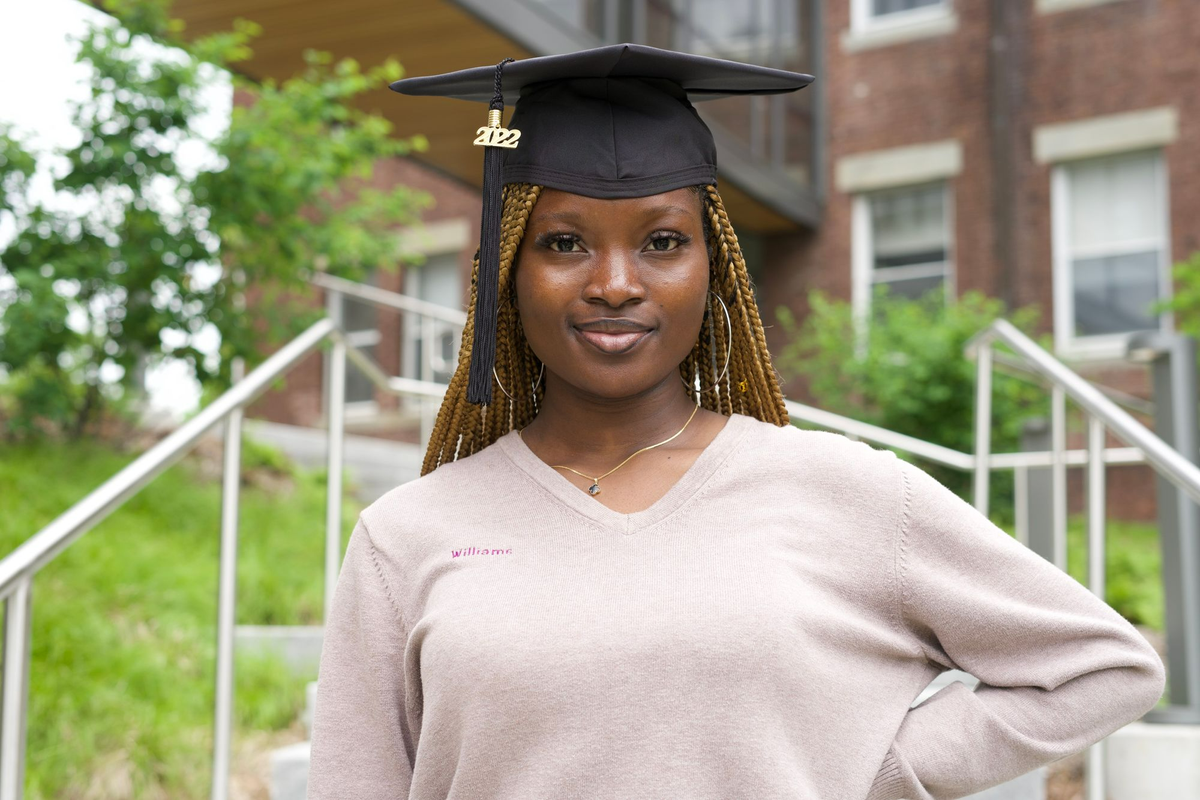
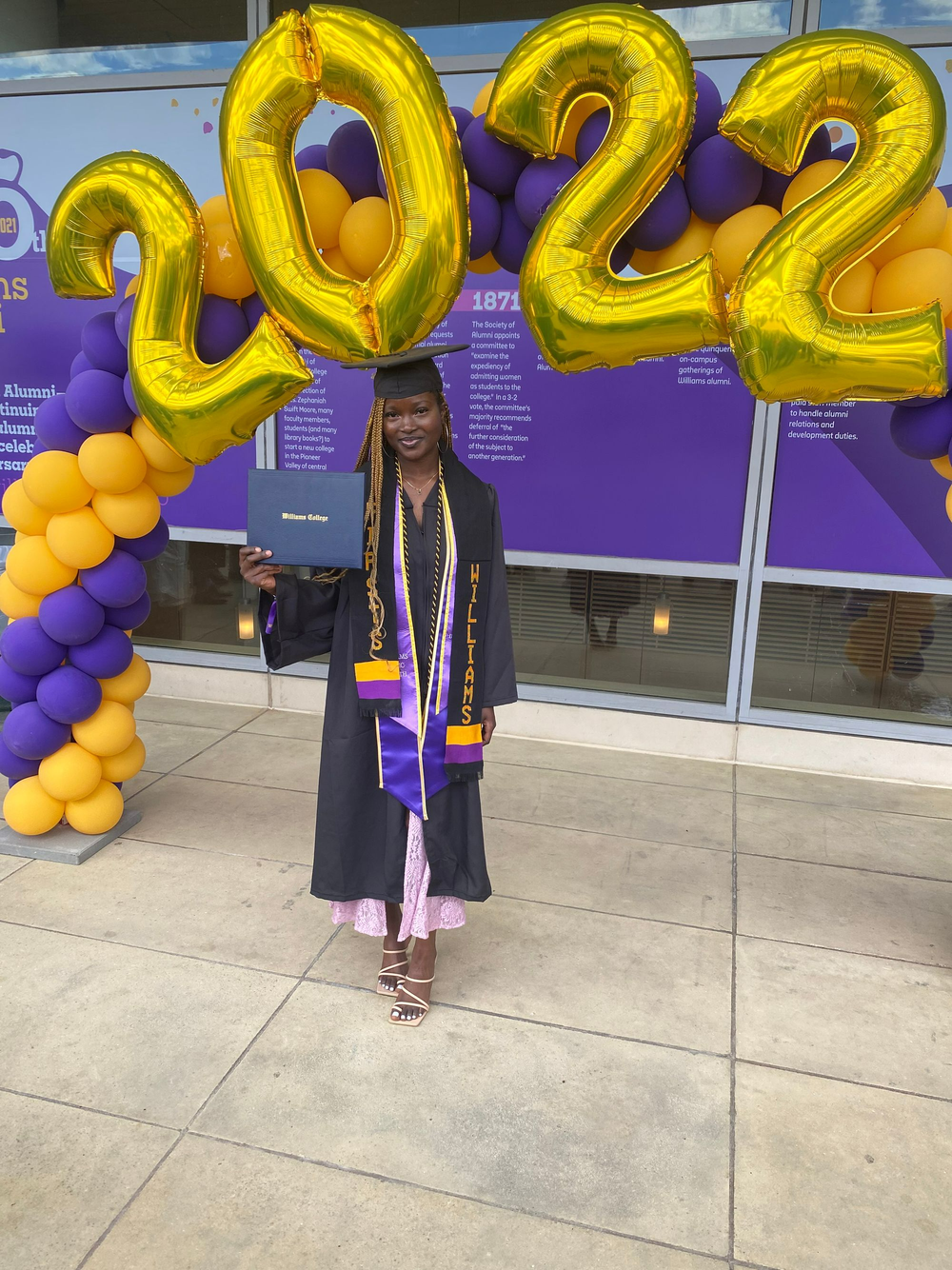
This emphasis on hard work manifests for Wunmi in how she’s unafraid to pursue anything she sets her mind to — including jumping headlong into a completely different field.
During the COVID-19 pandemic, picking up a new skill while stuck at home was common; from sourdough starters to home improvement projects, there was no shortage of opportunity. Wunmi, who always had a tertiary interest in technology, participated in Stanford’s Code in Place, the first-half of their flagship course teaching the coding language python.
For Wunmi, this course was another tool in her ever-growing belt of skills.
“I’ve always felt like a jack-of-all-trades,” Wunmi said. “By this time [in college], I had lots of [academic] research under my belt and my major was set in stone, but I didn’t see that as a limitation. I took opportunities outside the classroom to explore a new interest!”
As the class came to a close and the pandemic endured, Wunmi said she didn’t think much about her experience until it was time to graduate.
“I had two things on my resume: research and Code in Place,” Wunmi said. “And, I knew I wanted to do something very different from [psychology] research; I kept wanting to learn more about the tech space — I didn’t care where I ended up, I just knew I’d have to work hard to get my foot in the door.”
From here, Wunmi set her sights on programs that would bridge her budding coding skills to a career in tech through on-the-job training. After some initial rejections, she said the universe recognized her continued hard work and aligned for her: she stumbled upon a recruiter with Merck, and after sharing her journey thus far, was offered a place in their IT department. Today, Wunmi is in the second phase of her two-year, three-part rotation program, where at its conclusion, she’ll get to pick her final assignment with Merck.
“Everything happens for a reason; every organization — like AHS — has been placed there to play an important role in my life,” Wunmi said. “I can’t emphasize enough the role that AHS has played and continues to play — the team, my cohort, and [Hammies] outside my cohort — have always been my biggest supporters as I’ve pursued new things. I am just extremely humbled.”
GRAD STATS
2017 COHORT
We are so proud of the 28 young adults in the 2017 Cohort to graduate from best-fit schools across the United States; they graduate into a strong, connected alum community that’s passionate about giving back to their communities and AHS.
64% of these Hammies plan to enter the workforce; 18% will join a fellowship, professional, or public service program; 14% are undecided; and, 4% will start grad., medical, or law School.
graduation stats
82%
Within 4-years
93%
Within 5-years
81%
ahs retention rate
Bachelor’s degree earners from low- and high-income schools graduated within 6-years at a rate of 30% and 52% respectively (NSCRC, 2022).
We retained 81% of our 2017 Cohort over the course of the five-year Empowerment Program, up from last year’s 75% for the 2016 Cohort.

degrees received
Arts
47%
Science
34%
Business
3%
Education
7%
Associate's
3%
N/A*
3%
* We had a one Scholar who sought employment in-lieu of graduation after having attended a large portion of their undergraduate program.
** The costs presented represent have been calculated to show four-year costs
$3,432
AVERAGE DEBT OF AHS SCHOLARS UPON GRADUATION
$27,800
AVERAGE DEBT OF US STUDENTS UPON GRADUATION
(NCES, 2022)
The average total cost of education reported by our Scholars was $227,928**; according to U.S. News (2022) the average total cost of tuition & fees for the 2022- 2023 academic year was $158,892 (private), $91,812 (public, out-of-state), and $41,692 (public, in-state).
70%
Of 2017 Hammies to Graduate Debt Free
NEVER A BRIDGE TOO FAR
ALUM // 2015 COHORT
ANHTU LU
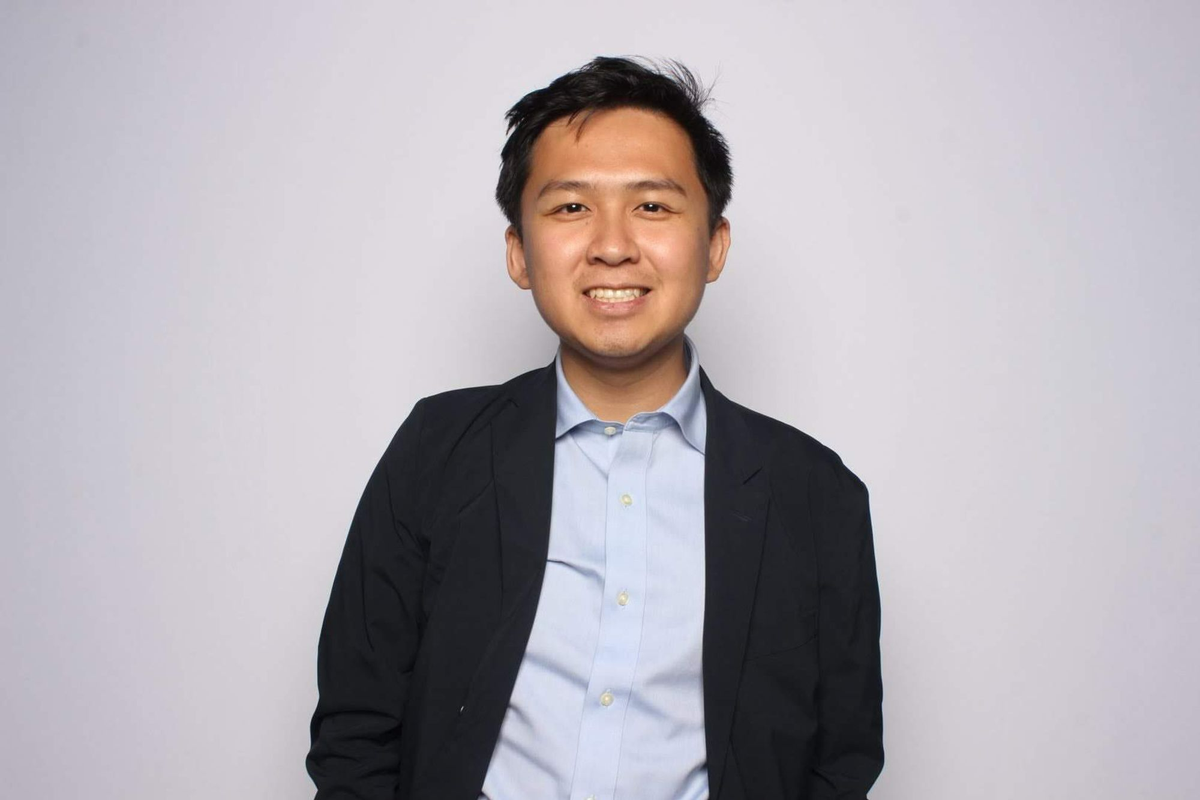
ABOVE: 2015 Hammie Anhtu Lu poses for a photo
Since AHS’ founding in the mid-2000s, we’ve welcomed up-to 40 new students each year, and at the same time, just as many graduate into our ever growing alumni community; It’s likely you’re within at least 200 miles of a Hammie (within the United States). For Anhtu Lu (’15), the broad reach of Hammies means bridges to new friends and opportunities are never too far.
“When I joined AHS, there was no New York Leader Week, but in Seattle, our Cohort quickly became a family,” Anhtu said, who graduated from University of California Berkeley with a double major in data science and operations research with an emphasis on public health. “And, even though we’ve branched out across the country — and even the world — we’ve stayed connected.”
Hammies are always willing to connect you with their own networks and share what has worked for them, Anhtu said. As a high school senior, Anhtu shared how his Hammie Mentor, Carolina Sosa (’14), bridged a critical gap when he felt unsure of his next steps.
“My senior year I felt lost and disconnected…my school was super competitive…[and] I was stressed, and burnt out. I always valued education, but I knew going into college right away wasn’t right,” Anhtu said, before connecting with his mentor. “Carolina provided a lot of career advice and friendship — she recommended I apply for the Global Citizen Year program.”
From there, Anhtu said his gap year living abroad in rural Senegal was the perfect push out of his comfort zone; he felt he pushed his horizons beyond where he grew up in Orange County and could set himself on a path he could be passionate about. Originally, Anhtu was only supposed to teach English, but after choosing to also participate in farming, he saw how folks in rural areas — often without electricity — were exposed to food- and waterborne diseases. Later, at the University of California at Berkeley, Anhtu researched sustainable clean-water technologies for folks in Kenya, specifically looking at how they empowered communities in their adoption and continued use of new water technologies. At JP Morgan, Anhtu now focuses on equity trading in the bio-technology sphere — learning about new technologies and their impacts on the world.
“I’m proudest of how proactive and confident I’ve grown throughout the years,” Anhtu said, reflecting on his time since joining the AHS Empowerment Program. “I was sheltered, but through the gap year and Hammies I’ve met who are driven, passionate, and ambitious, I’ve come to better understand what my values are — what my purpose is.”
Today, Anhtu says he’s been building bridges of community with his fellow Hammies, planning meet-ups with other local Hammies across cohorts — often melding their respective friend groups together — and connecting with younger Hammies by volunteering at Leader Weeks, Hamilton Award Judging, and much more.
“I feel like I owe a lot of my success to the program and the people I’ve met through [AHS] — older Hammies, younger Hammies, staff, and the people who volunteer — everyone has been willing to help,” Anhtu said. “I always try to give back whenever possible because I’ve been given so much; I want to be able to give back that same support for someone else.”
ALL OF THE ABOVE
ALUM // 2014 COHORT
ISABELLE YULIN YANG
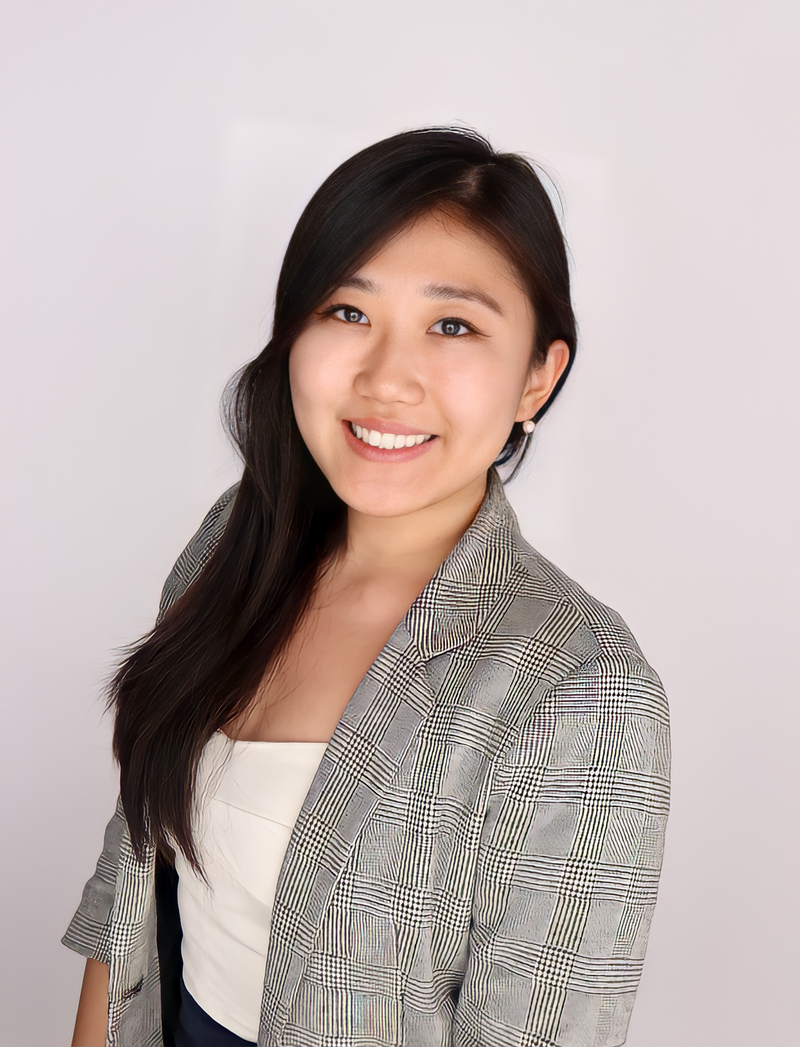
ABOVE: 2014 Hammie Isabelle Yulin Yang poses for a photo
There’s a lot to do after crossing the bridge from college. Do you: (A) jump right into the workforce? (B) Start applying to postgraduate programs? Or, (C) focus on service?
2014 Hammie Isabelle Yulin Yang chose (D) all of the above.
“Arguably, the hardest part is transitioning from college to career,” Isabelle, a Strategy Consultant with Deloitte, said. “Other scholarship programs don’t emphasize it.”
Having made that transition herself back in 2019, a Finance and International Business graduate from Villanova University in Pennsylvania — with minors in Chinese and Asian Studies — Isabelle’s goal since graduating has been to build the bridges she never had.
Part of the challenge for first generation, low-income college students, Isabelle says, is not having role models to guide you — you either sink or swim — especially in the corporate world.
“Gratitude drives me to lean-in with AHS,” Isabelle, who also chairs the Alumni Board, said. “The opportunities afforded to me were because people around me saw something in me before I realized it myself — the help I’ve received changed my life.”
Isabelle, alongside the Alumni Board, works to enable a sense of community between all Hammies to connect active Scholars to potential alum role models — all on top of working a full-time job while she applies to postgraduate programs in pursuit of a Masters in Business Administration.
When she first started with Deilotte, Isabelle said, she felt like an imposter.
“I felt I had to hide who I was to fit a certain mold,” she said. “I wasn’t proud of where I came from because I wasn’t the stereotypical image of success.”
Additionally, Isabelle says the rise in violence against the East Asian community at the outset of the COVID-19 pandemic didn’t help.
“I never wanted my personal feelings to come into work, but it came to a point where I couldn’t separate the two,” Isabelle said. “When asked by a coworker if I was okay, I remember finally saying that no — no, I wasn’t.”
Together, they created the Southeast and East Asian Leadership (SEAL) network at Deloitte, where people could reach-out, feel seen, and be hear — much like the environment AHS creates.
“Growing up, you feel like you’re so different from people, but AHS brings these groups of wonderful people together,” Isabelle said. “You learn it’s okay to be vulnerable — AHS gave me the courage to be vulnerable.”
Looking forward, Isabelle plans to keep in-touch with AHS — to give back to the organization she says changed her outlook on life. As Alumni Board Chair, Isabelle mobilizes fellow alum for Give Big and Giving Tuesday; she’s taught active Hammies about personal finance; and, volunteered during Texas Leader Week 2022 to mentor and connect with active Hammies interested in the corporate world.
ANNUAL REPORT
SIDEBAR
ALUMNI BOARD
Alexander Hamilton Scholars’ Alumni Board is composed of representatives from every Hamilton Alumni Cohort, spanning from the first one in 2005 all the way to our most recent graduates from the 2017 Cohort.
These individuals are passionate, values-driven leaders striving to propel the mission of AHS. In partnership with staff, the Alumni Board promotes alumni engagement through an annual summit, mobilizing alumni to support AHS on GiveBig and Giving Tuesday, and expanding resources for undocumented Scholars.
Thank you to all our incredible Alumni Board Members serving from 2022 to 2024!
FINANCES
ORGANIZATIONAL REVENUE + EXPENSES
emergency fund
In 2022, AHS aided our Scholars with $20,725 in emergency funds, bridging food and shelter insecurities, assisting with unexpected fees, medical expenses, and transportation needs.
These emergency funds are necessary for our students to bridge high-risk drop-out circumstances that would disrupt their academic careers. These students continue to face the reality of increasing tuition costs, inflation, and cuts to college aid; many deal with extenuating family circumstances, unfriendly bureaucratic complexity, and more.
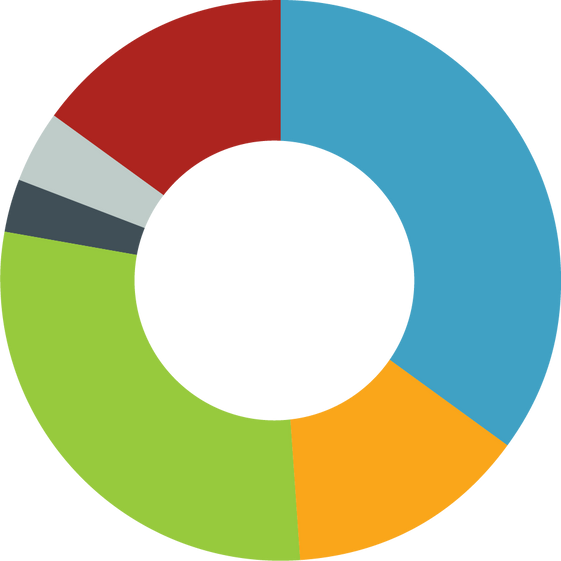
Housing Insecurity
35%
Academic Fees
29%
Food Insecurity
15%
Medical Fees
14%
Transportation
04%
Utilities
03%
revenue
$865,052
2022 revenue breakdown
$130,835
Events
$166,994
reserves
$54,024
corporate sponsorships
$340,880
individual donations
$170,319
grants
$865,052
2022 expense breakdown
ALEXANDER HAMILTON SCHOLARS
2022 SPONSORS
